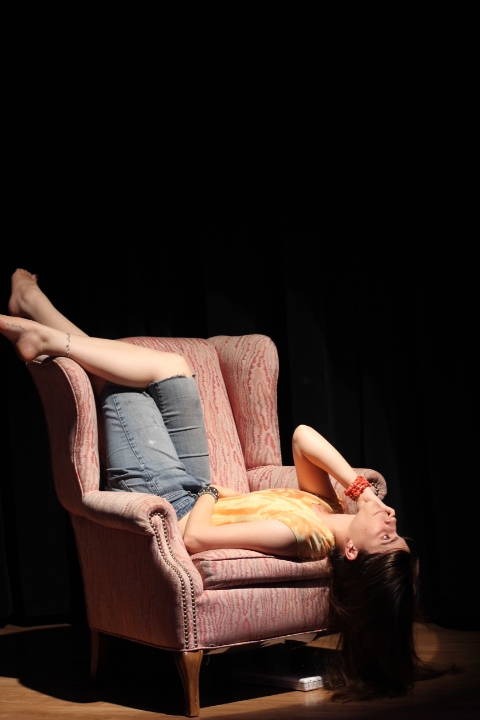Reaching out to each other is now effortless, thanks to technology. However, in the San Juan Community Theatre’s summer play, “For Better,” the ease of communication complicates relationships.
“Wait,” the character Michael implores his wife and friend while attempting to hold two conversations that both result in hang-ups, “why won’t anyone wait?”
The play runs June 26-30 and July 3, 5, 6 and 7 in the theater’s Gubelman Room. All shows begin at 7:30 p.m. Note there are two scheduling differences than previous theater plays; there is no performance on July 4, and “pay what you can” night is every Wednesday not Thursday. On Friday’s there will be a talkback, or question and answer, session after the play, where the audience can discuss the pros and cons of technology. Tickets are $23 Adults, $12 Students, $5 Student Reserved – at door only. They are available online at https://www.sjctheatre.org/ or by calling the theater’s box office at 360-378-3210.
“People are talking, but I’m not sure they are connecting,” Carol Hooper, director, said.
“For Better” is a faced paced and humorous play. It was written by prolific playwright Erik Coble in 2005.
Hooper noted that she was drawn to the play in part because she is a fan of Coble’s work. She directed one of his other pieces, “Velocity of Autumn” last year.
“He writes on such a broad variety of topics, it makes you wonder if he just sits around going ‘hey there’s an issue, I think I’ll write about that’,” she said with a laugh.
The script was read as part of the theater’s “On-Book” programs, Hooper added, and the audience loved it.
The title “For Better,” does not just stem from the classic for better or worse wedding vows, according to Hooper, but for better or worse, this is what technology is doing to society. The play serves as a humorous warning that people should keep an eye on the direction technology is heading.
In a majority of the scenes, the actors are on the phone, standing far apart on stage, not looking at each other. It was difficult for the actors, Hooper noted, to act without seeing who they are speaking to.
“They didn’t have any body language to go off of or emotional cues,” she said. It was her task as a director to work with them to overcome that challenge.
Hooper has directed five productions over the last few years. Assistant Director, Jan Zucher has been a wonderful set of extra eyes for this performance, Hooper said.
“Directing is my happy place,” she said, explaining that she loves the creativity of it, as well as hoping to bring stories to the stage islanders will enjoy.
“I do it for the creative aspect as well as doing something for the community,” she said.
Karen, played by Raeleen Hunter, is engaged in “For Better,” without really having ever met the groom. Their entire relationship has been via cell phones and other communication devices. Her father, Wally, played by Greg Swinford, who is new to the stage, doesn’t own a cellphone, and while he may not understand some of the new technology, he has a certain kind of wisdom, according to Hooper. Wally’s other daughter Francine Dexter, played by Jenni Merritt, who has acted in and directed many plays — is a traveling businesswoman. Her husband Michael Dexter, played by Brad Fincher, also travels frequently. Fincher was last seen as Lumiere in “Beauty and the Beast,” and was also in “Velocity of Autumn.” The Dexters’ marriage has become reliant on long-distance communication, speaking to each other from airports and hotel rooms. Nick Wainwright plays Michael’s best friend Stuart. Wainwright has lived on the island for years, however, this is the first time locals will have seen him on stage. Naomi Boydson plays Lizzy, a friend of Karen and Francine. Theatergoers might remember Boydson from “Death by Design.”
Social media adds even more issues in communication and relationships, however, the play does not address those. Instead, the play’s primary focus is how new communication devices make life both easier and more formidable.
“I have had people text me, and after a few texts back and forth, I wonder why are we doing this? Why don’t we just pick up the phone?” Hooper said. “We’ve lost personal touch, in a nutshell. It’s hard to be close to someone when they are physically not there.”




